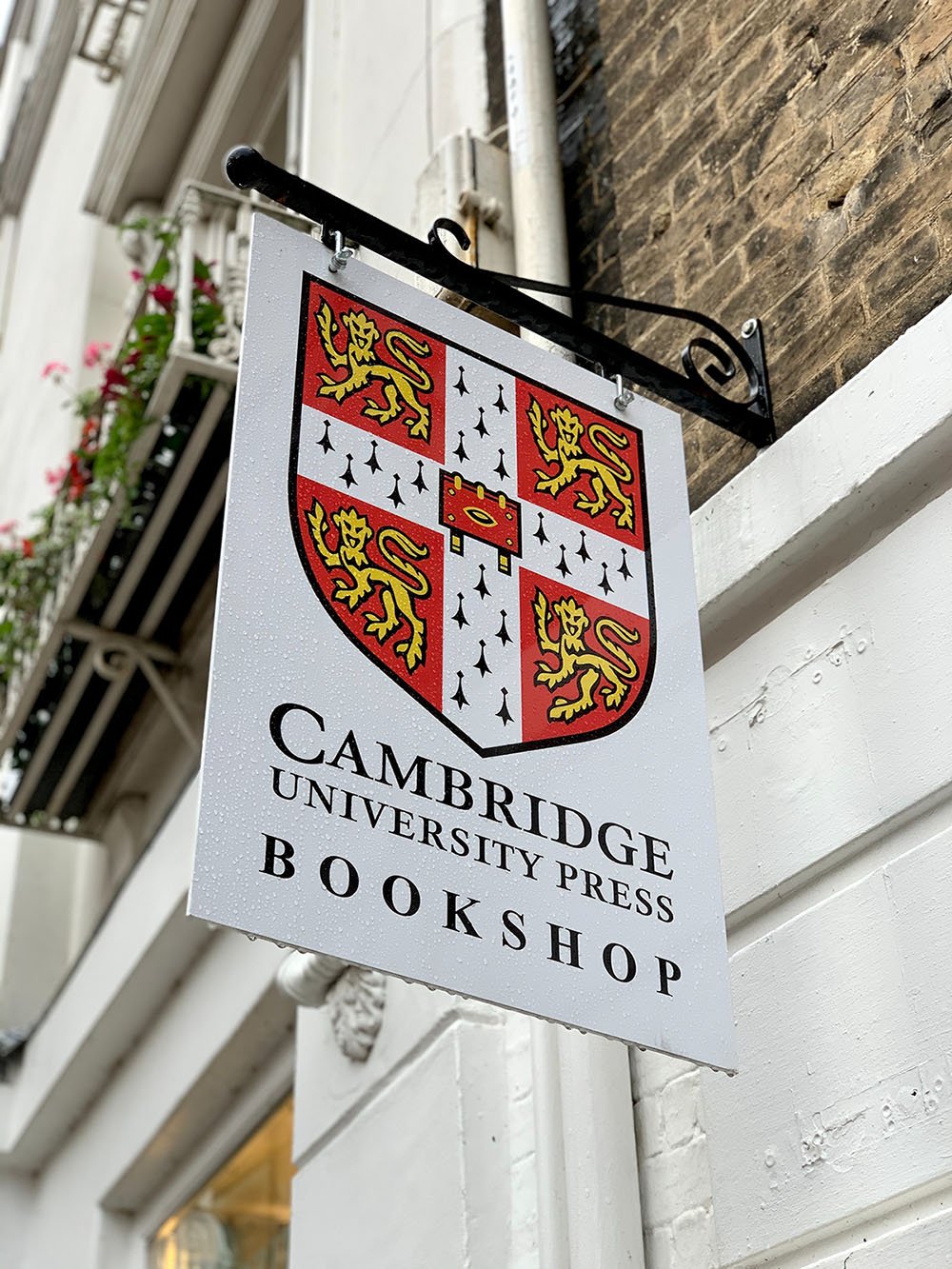 Parents and educators have observed firsthand that the pandemic caused massive disruptions in the academic, emotional, and social lives of students. The compounded effect of the past three years is responsible for significant pandemic learning loss. Meira Levinson and Daniel Markovits note in their article for The Atlantic that no other historical event has so suddenly and so drastically changed the way that American children spend their days–not the Great Depression, not World War II. For children and teens especially, a year or two is a large chunk of their lives. As we wrap up the second full year of in-person schooling since the onset of the pandemic, we are beginning to have enough data and perspective to better understand the impacts that the pandemic has had on our students and how we will continue to recover from them.
Parents and educators have observed firsthand that the pandemic caused massive disruptions in the academic, emotional, and social lives of students. The compounded effect of the past three years is responsible for significant pandemic learning loss. Meira Levinson and Daniel Markovits note in their article for The Atlantic that no other historical event has so suddenly and so drastically changed the way that American children spend their days–not the Great Depression, not World War II. For children and teens especially, a year or two is a large chunk of their lives. As we wrap up the second full year of in-person schooling since the onset of the pandemic, we are beginning to have enough data and perspective to better understand the impacts that the pandemic has had on our students and how we will continue to recover from them.
Quantifying Pandemic Learning Loss
Recent studies show that the pandemic’s major disruptions to daily instruction have set today’s students back significantly. A meta-analysis of studies conducted in 15 countries by Nature Human Behavior suggests that pandemic learning loss for students is the equivalent of 35% of a school year’s worth of learning. Indeed, 2022 US National Assessment of Educational Progress (NAEP) logged significant drops in reading ability and the greatest decline in student math performance in American history. Students in New York state were hit especially hard. On average, their math and reading losses were double those of their peers across the country. In purely quantitative terms, the pandemic’s impact on learning has undone decades of progress in American student performance in English and Math. Getting test scores back to pre-pandemic levels would take decades at the current rate of recovery.
American students in 2022 were, on average, about 15 to 24 weeks behind in math and nine weeks behind in reading compared with 2019. History scores have also fallen significantly. National test scores for 2023 reflect an “accelerated…downward trend [in history] that began nearly a decade ago” with only 13 percent of eighth graders achieving scores deemed proficient in U.S. history, and about 40 percent scoring “below basic,” according to The New York Times. The average 8th grader is performing one full year below grade level.
Pandemic learning loss disproportionately impacted students who were already struggling academically before the pandemic, to the point that statistical declines across subjects have largely been driven by the lowest-performing students. Students from lower-income families and districts also tended to suffer greater setbacks than students in high-income families and districts. At the middle- and high-school levels, male and female students experienced similar rates of academic achievement declines across all subjects. Results reported by the Enrollment Management Association indicate that performance gaps between students of different racial identities are wider today than they were pre-COVID. Public school students experienced significantly larger declines than private school students. Asian and Black students at the middle-school level experienced much sharper declines in quantitative scores than their peers of other racial identities.
Across socioeconomic lines, children whose schools remained remote longer tended to suffer greater academic setbacks. Most often, the schools that managed to limit the amount of time students were in Zoom school were often well-resourced private schools. In fact, many elite private schools practically avoided pandemic learning loss due to lower student-teacher ratios, more in-person instruction, and greater ease in implementing remote learning measures when their buildings were closed during the 2020-2021 school year.
Beyond Test Scores: Mental Health Impacts of the Pandemic
The social isolation of the pandemic caused suffering in people of all ages but this is compounded in children and teens, who are still developing the skills needed to form and maintain friendships, collaborate with others, and cope with their emotions. 94% of the 362 school guidance counselors surveyed by The New York Times last April reported higher rates of anxiety and depression among their students; 88% percent said students were struggling to regulate their emotions; and almost 75% said that students were struggling to resolve conflicts with their friends. A CDC survey of high-school students from January to June 2021 found a 20% increase in teens who felt “persistently sad or hopeless” over the previous year. 20% of the students surveyed had “seriously considered attempting suicide.” The rates of hospitalization and suicide attempts were even higher for girls. In response to this data, the American Academy of Pediatrics, the American Academy of Child and Adolescent Psychiatry, and the Children’s Hospital Association declared a national emergency in child and adolescent mental health in 2021. The declaration itself notes that while the pandemic exacerbated the mental health crisis in children and teens, the growing rates of mental health concerns predate it.
As we come to grips with this alarming situation and plan for the future, it is also important to note that students who were able to maintain social connections–whether to a friend, counselor, or teacher–during lockdown and remote learning, tended to fare much better than those who did not.
A Patchwork of Solutions
What’s especially concerning about pandemic learning loss is that there is no tried and tested method for recovering so much missed instruction at scale. So how have districts been spending the $190 billion dollars provided as pandemic relief funds? Some of the most common academic recovery interventions among schools surveyed by Future Ed, a research lab at Georgetown University, are summer learning, instructional materials, investing in software, afterschool enrichment, and tutoring. Among the most promising and prevalent interventions is “high-dosage” tutoring, where school districts hire a “tutor corps” that can provide individual and small-group instruction to students. States crafted their own plans, but most address some combination of making up for lost instructional time, investing in student mental health, hiring new staff, training existing staff, and infrastructural investments like expanding internet access for students.
The Center for Education Policy Research at Harvard University released a study that measures the impact of COVID recovery interventions and has identified some effective strategies for alleviating pandemic learning loss. However, the study notes that, “The implementation challenges district leaders recounted suggest that the simple-sounding logic of academic intervention—identify students in need and provide them extra support—belies a host of complex design and implementation decisions.” In other words, the reality is that even apparently straightforward academic interventions are cumbersome to implement at scale, and would require historic action to be effective.
As states and districts weigh their options for how to address these historic setbacks in the academic success and emotional health of American students, we must remember that the statistics we’ve outlined here are helpful for painting a picture of our present reality in aggregate. Yet, it is important not to lose sight of the fact that the development of academic ability, emotional resilience, and self-regulation are deeply personal journeys that each individual student undertakes. Students’ academic abilities and emotional wellbeing are certainly impacted and conditioned by context, but in addition to the way that states, districts, and independent schools end up addressing pandemic learning loss, one thing is for certain: our students will need our continued support, encouragement, and guidance as we continue to make our way out of this strange and difficult time.
To discuss your family’s needs in more detail, please contact us to schedule a call.
By Brad Hoffman, M.S.Ed., Board Certified Educational Planner, and Faya Hoffman, M.A., Board Certified Educational Planner
Sources
- Betthäuser, B. A., Bach-Mortensen, A. M., & Engzell, P. (2023). A systematic review and meta-analysis of the evidence on learning during the COVID-19 pandemic. Nature Human Behavior. https://doi.org/10.1038/s41562-022-01506-4
- Howard, J. (2023, January 30). Children lost about 35% of a normal school year’s worth of learning during the pandemic, study suggests. Retrieved May 4, 2023, from https://edition.cnn.com/2023/01/30/health/covid-learning-loss-study-wellness/index.html
- Levinson, M., & Markovits, D. (2022, June 23). The Biggest Disruption in the History of American Education. The Atlantic. https://www.theatlantic.com/ideas/archive/2022/06/covid-learning-loss-remote-school/661360/
- O’Neill, J. (2023, March 15). New York 4th-graders lost twice as much ground as peers and lost year of learning during pandemic virtual learning. NY Post. https://nypost.com/2023/03/15/nys-4th-graders-saw-test-scores-plummet-during-pandemic/?utm_campaign=iphone_nyp&utm_source=pasteboard_app
- Bryant, J., Dorn, E., Pollack, L., & Sarakatsannis, J. (2023, January 11). COVID-19 learning delay and recovery: Where do US states stand? McKinsey & Company. Retrieved May 4, 2023, from https://www.mckinsey.com/industries/education/our-insights/covid-19-learning-delay-and-recovery-where-do-us-states-stand
- Braga, Dana, and Kim Parker. “Most K-12 Parents Say First Year of Pandemic Had a Negative Effect on Their Children’s Education.” Pew Research Center, https://www.pewresearch.org/short-reads/2022/10/26/most-k-12-parents-say-first-year-of-pandemic-had-a-negative-effect-on-their-childrens-education/. Accessed 5 May 2023.
- AAP-AACAP-CHA Declaration of a National Emergency in Child and Adolescent Mental Health. https://www.aap.org/en/advocacy/child-and-adolescent-healthy-mental-development/aap-aacap-cha-declaration-of-a-national-emergency-in-child-and-adolescent-mental-health/. Accessed 5 May 2023.
- Kane, Thomas. “Kids Are Far, Far Behind in School.” The Atlantic, 22 May 2022, https://www.theatlantic.com/ideas/archive/2022/05/schools-learning-loss-remote-covid-education/629938/.
- “Academic Recovery.” FutureEd, 7 June 2022, https://www.future-ed.org/academic-recovery/.
- “With an Influx of Covid Relief Funds, States Spend on Schools.” FutureEd, 3 Jan. 2021, https://www.future-ed.org/with-an-influx-of-covid-relief-funds-states-spend-on-schools/.
- Carbonari, M., Davison, M., DeArmond, M., Dewey, D., Dizon-Ross, E., Goldhaber, D., Hashim, A., Kane, T., McEachin, A., Morton, E., Patterson, T., Staiger, D. (2022) The Challenges of Implementing Academic COVID Recovery Interventions: Evidence From the Road to Recovery Project. Research Report. Cambridge, MA: Center for Education Policy Research, Harvard University. Accessed on May 5, 2023. https://cepr.harvard.edu/road-to-covid-recovery
- Mervosh, S. (2023, May 3). It’s Not Just Math and Reading: U.S. History Scores for 8th Graders Plunge. The New York Times. https://www.nytimes.com/2023/05/03/us/us-history-test-scores.html?smid=nytcore-ios-share&referringSource=articleShare
- Koo, J. K., Wright, K. D. (2023). Effects of COVID-19 on Educational Outcomes: Enrollment Management Association Special Report. Enrollment Management Association.
 Advanced Placement (AP) and International Baccalaureate (IB) Programs—we hear these phrases with varying degrees of frequency in public and private high schools across America. What do they mean, and what are the differences? How do AP and IB programs factor into
Advanced Placement (AP) and International Baccalaureate (IB) Programs—we hear these phrases with varying degrees of frequency in public and private high schools across America. What do they mean, and what are the differences? How do AP and IB programs factor into  In the UK’s unique education system, all students are required to sit
In the UK’s unique education system, all students are required to sit  In the UK, around the age of 15 to 16, students take public examinations called GCSEs (General Certificate of Secondary Education). These are the only mandatory public examinations in the UK system, which means that after earning these qualifications, 16-year olds are allowed to leave school altogether; nevertheless 16-year old school-leavers are still required to enrol in some form of traineeship or apprenticeship until the age of 18, even if they start a regular job.
In the UK, around the age of 15 to 16, students take public examinations called GCSEs (General Certificate of Secondary Education). These are the only mandatory public examinations in the UK system, which means that after earning these qualifications, 16-year olds are allowed to leave school altogether; nevertheless 16-year old school-leavers are still required to enrol in some form of traineeship or apprenticeship until the age of 18, even if they start a regular job. The United Kingdom is famous for its university system. Every year, British institutions dominate the top places in international higher education rankings, making the UK an attractive place for applicants from around the world. In order to apply to these universities, students must use
The United Kingdom is famous for its university system. Every year, British institutions dominate the top places in international higher education rankings, making the UK an attractive place for applicants from around the world. In order to apply to these universities, students must use